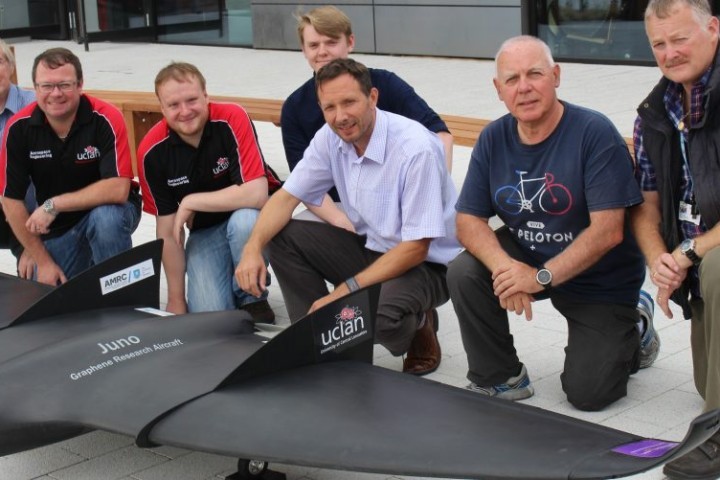UCLan's aerospace engineering team worked in partnership with the Sheffield Advanced Manufacturing Research Centre, the University of Manchester’s National Graphene Institute, Haydale Graphene Industries and a range of other businesses to develop the unmanned aerial vehicle, which also includes graphene batteries and 3D printed parts.
Billy Beggs, UCLan’s engineering innovation manager, said: “The industry reaction to Juno at Farnborough was superb with many positive comments about the work we’re doing. Having Juno at one the world’s biggest air shows demonstrates the great strides we’re making in leading a programme to accelerate the uptake of graphene and other nano-materials into industry.“The programme supports the objectives of the UK Industrial Strategy and the university’s Engineering Innovation Centre to increase industry relevant research and applications linked to key local specialisms. Given that Lancashire represents the fourth largest aerospace cluster in the world, there is perhaps no better place to be developing next generation technologies for the UK aerospace industry.” David Bailey, chief executive of the North West Aerospace Alliance, added: “The North West aerospace cluster contributes over £7bn to the UK economy, accounting for one quarter of the UK aerospace turnover. It is essential that the sector continues to develop next generation technologies so that it can help the UK retain its competitive advantage."






















